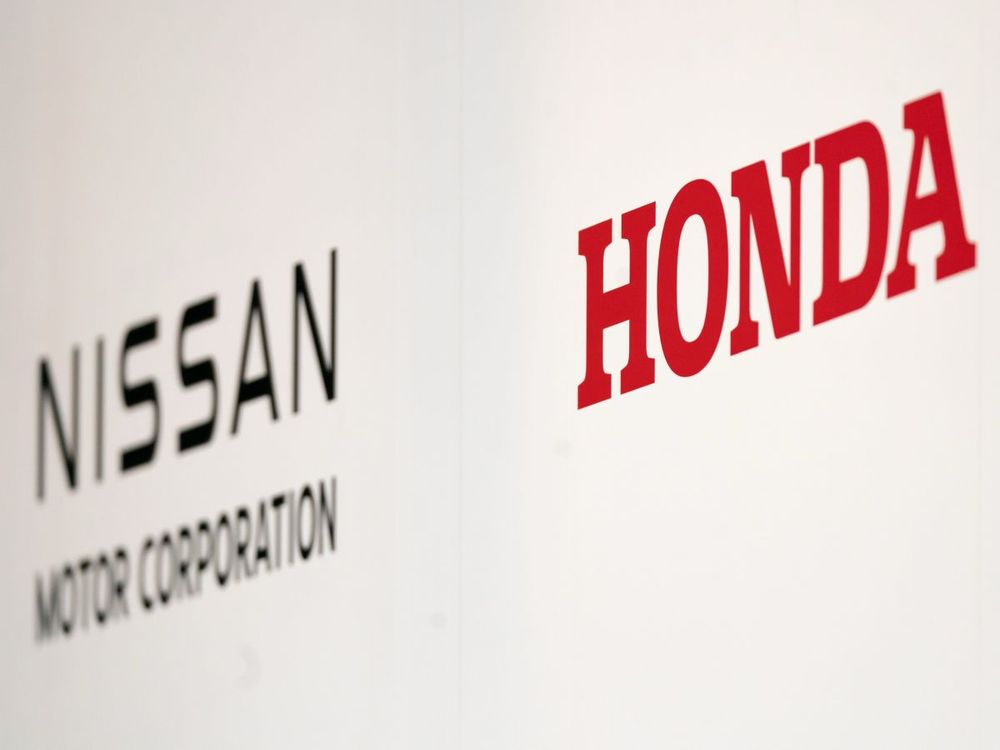Advertisement|Remove ads.
No Merger? No Problem: Honda, Nissan Hit The Road Together On Car Software

Once poised to form one of the world’s largest auto alliances, Honda and Nissan are instead rebooting their relationship on a different front: software.
After their merger talks fell through last year, Honda and Nissan are now teaming up on something more grounded: building a shared operating system for their cars, according to a Nikkei report.
With EV rivals pulling ahead and U.S. tariffs adding pressure, both automakers are looking to cut costs and keep up by focusing on the brains behind next-gen vehicles, which is the software.
The pivot to software follows a string of financial and strategic headwinds.
Nissan has raised $4.5 billion via U.S. dollar and euro bonds to refinance a wave of maturing debt, including 700 billion yen due this fiscal year. All three major rating agencies have downgraded the company to junk status, and Reuters recently reported that Nissan has asked suppliers to delay payments to conserve cash.
The company has also delayed key EV launches in North America, pushing production of two electric SUVs — one for Nissan, the other for its luxury arm, Infiniti — from 2028 to as late as 2029.
Additionally, Nissan pulled two EV models from its U.S. lineup and halted shipments to Canada in response to Washington’s 25% tariff on Japanese auto imports.
For Honda, the backdrop is similarly challenging.
Japanese automakers slashed export prices to the U.S. by 19.4% in June, marking the steepest drop in at least eight years, as they race to stay competitive amid mounting trade pressure.
Honda has weathered the storm better than some, with U.S. sales rising 7.3% in May, driven by strong light truck and hybrid demand.
However, as traditional auto hardware gives way to software-defined systems, both companies are betting that collaboration is the only way to remain relevant.
Honda and Nissan want their next-gen cars to run more like smartphones, where features can be added or upgraded with a simple update, Nikkei reported. Their planned shared software platform would enable them to do just that. The idea is to reduce costs, maintain control over valuable vehicle data, and eventually offer paid features or subscriptions, much like app stores do today.
On Stocktwits, message volume for both Honda and Nissan was ‘high’ with sentiment tilting ‘bearish’ for Honda and ‘bullish’ for Nissan by late Monday.
So far in 2025, shares of HMC have risen 9.3%, while NSANY’s stock has fallen 27.4%.
For updates and corrections, email newsroom[at]stocktwits[dot]com.













/filters:format(webp)https://news.stocktwits-cdn.com/large_Getty_Images_2264020227_jpg_4d7420bef3.webp)
/filters:format(webp)https://news.stocktwits-cdn.com/Anushka_Basu_make_me_smile_in_the_picture_b92832aa_af59_4141_aacc_4180d2241ba8_1_2_png_1086e0ed8c.webp)
/filters:format(webp)https://news.stocktwits-cdn.com/large_Getty_Images_2259210190_jpg_d48bbe3269.webp)
/filters:format(webp)https://news.stocktwits-cdn.com/large_Getty_Images_1396534113_jpg_b0e09f299b.webp)
/filters:format(webp)https://news.stocktwits-cdn.com/large_Jane_Street_3ac3fb6443.webp)
/filters:format(webp)https://news.stocktwits-cdn.com/large_Truth_social_5bfbc7389b.webp)
/filters:format(webp)https://news.stocktwits-cdn.com/large_Getty_Images_2221283194_jpg_8178c730a4.webp)